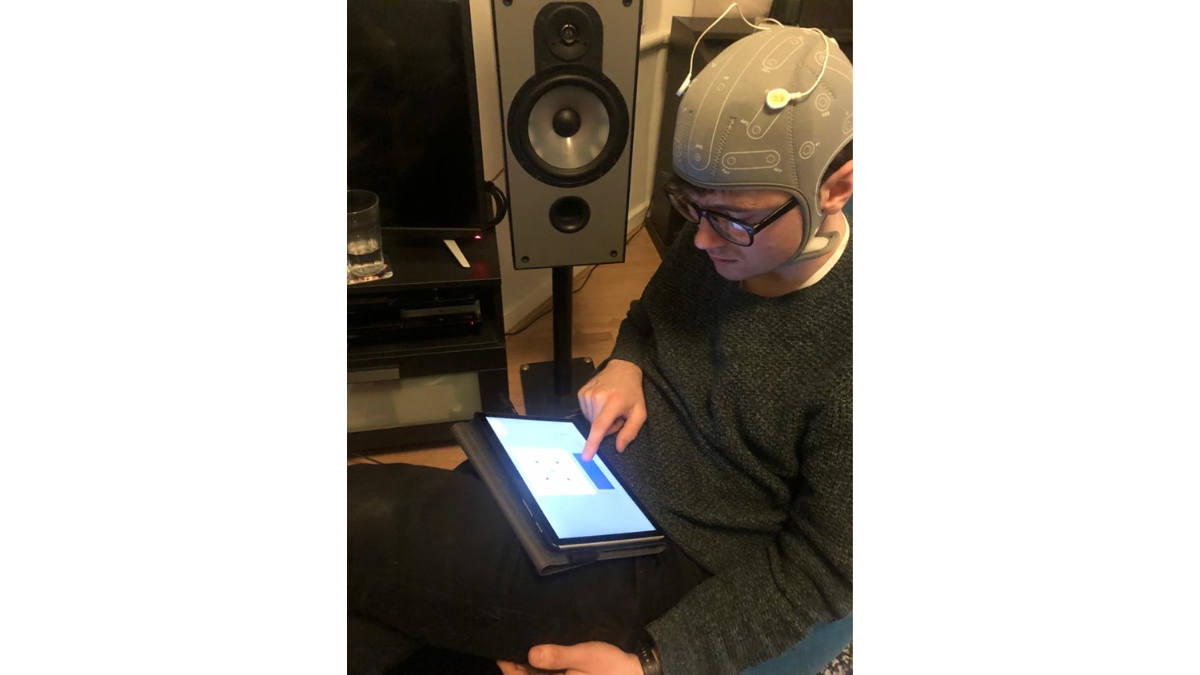AI-Powered brain stimulation at home could enhance concentration, new research finds
A personalised brain stimulation system powered by artificial intelligence (AI) that can safely enhance concentration from home has been developed by researchers from the University of Surrey, the University of Oxford and Cognitive Neurotechnology. Designed to adapt to individual characteristics, the system could help people improve focus during study, work, or other mentally demanding tasks.

Published in npj Digital Medicine, the study is based on a patented approach that uses non-invasive brain stimulation alongside adaptive AI to maximise its impact. The technology uses transcranial random noise stimulation (tRNS) – a gentle and painless form of electrical brain stimulation – and an AI algorithm that learns to personalise stimulation based on individual features, including attention level and head size. By tailoring stimulation intensity to these characteristics, the system identified optimal settings without the need for expensive MRI scans, making the personalisation scalable and cost-effective.
The AI was trained using data from 103 people aged 18 to 35, who completed 290 home-based sessions using CE-marked (European Union standard) headgear and a tablet-based sustained attention task. The system was then evaluated in a double-blind study involving 37 new participants. Those who received personalised AI-guided stimulation showed significantly better performance than during standard or placebo stimulation. The strongest improvements were seen in individuals who initially showed lower levels of attention.
The study found no serious side effects and the frequency and severity of sensations during stimulation were no different from those experienced during placebo. The AI also helped avoid stimulation levels that could impair performance – something previous non-personalised methods could not achieve.
[ENDS]
Notes to editors
- Professor Cohen Kadosh is available for interview; please contact mediarelations@surrey.ac.uk to arrange.
The full paper is available at: https://www.nature.com/articles/s41746-025-01744-6
Related sustainable development goals


Featured Academics
Media Contacts
External Communications and PR team
Phone: +44 (0)1483 684380 / 688914 / 684378
Email: mediarelations@surrey.ac.uk
Out of hours: +44 (0)7773 479911
